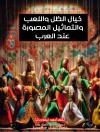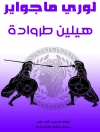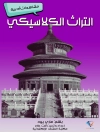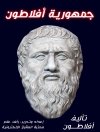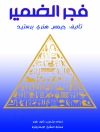The classical tradition—the legacy of Ancient Greece and Rome—is a large, diverse and important field that continues to shape human endeavour and engender wide public interest. The Classical Tradition: Art, Literature, Thought presents an original, coherent and wide-ranging guide to the afterlife of Greco-Roman antiquity in later Western cultures and a ground-breaking reinterpretation of large aspects of Western culture as a whole – English-speaking, French, German and Italian – from a classical perspective. Encompassing almost two millennia of developments in art, literature, and thought, the authors provide an overview of the field, a concise point of reference, and a critical review of selected examples, from Titian to T. S. Eliot, from the hero to concepts of government. They engage in current theoretical debate on various fronts, from hermeneutics to gender.
Themes explored include the Western languages and their continuing engagement with Latin and Greek; the role of translation; the intricate relationship of pagan and Christian; the ideological implications of the classical tradition; the interplay between the classical tradition and the histories of scholarship and education; the relation between high and low culture; and the myriad complex relationships—comparative, contrastive, and interactive—between art, literature, and thought themselves. Authoritative and accessible, The Classical Tradition: Art, Literature, Thought offers new insights into the powerful legacy of the ancient world from the Middle Ages and the Renaissance to the present day.
Tabela de Conteúdo
List of Figures vii
List of Plates viii
Prologue ix
Acknowledgements xiii
Part I Overview 1
§ 1 The Classical Tradition and the Scope of Our Book 3
§ 2 Mapping the Field 10
§ 3 Eras 15
§ 4 Sustaining the Tradition: Classics and Education 32
§ 5 Authority and Authorities 52
§ 6 Masters of Knowledge 61
§ 7 Models of Style 69
§ 8 Beacons of Morality 79
§ 9 Love Guides 87
§ 10 Special Relationships 98
§ 11 The Visual Arts: Contexts and Connections 102
§ 12 Popular Culture and Its Problematics 119
§ 13 Languages and Language 137
§ 14 Modes of Engagement 166
§ 15 Translation 173
§ 16 Science and Sensibility 199
§ 17 Looking at the Past 224
§ 18 The Classical Tradition – and the Rest 241
Part II Archetypes 249
§ 19 Preface 251
§ 20 The Dome 253
§ 21 The Hero 263
§ 22 Word-Genres 276
Part III The Imaginary 287
§ 23 Preface 289
§ 24 Myth 292
§ 25 The City: Rome 306
§ 26 Forms of Government 322
§ 27 The Order of Things 331
Part IV Making a Difference 341
§ 28 Preface 343
§ 29 Originators 346
§ 30 Points of Departure 358
§ 31 Ideas and Action 375
Part V Contrasts and Comparisons 391
§ 32 Preface 393
§ 33 Painting 394
§ 34 Political Thought 402
§ 35 Poetry 411
Epilogue 428
Bibliography 432
Index 475
Sobre o autor
Michael Silk is Professor of Classical and Comparative Literature at King’s College London and Adjunct Professor in the Department of English and Comparative Literature at the University of North Carolina, Chapel Hill.
Ingo Gildenhard is a Lecturer in Classics at the University of Cambridge and a Fellow of King’s College.
Rosemary Barrow is Reader in Classical Art and Reception at the University of Roehampton.


